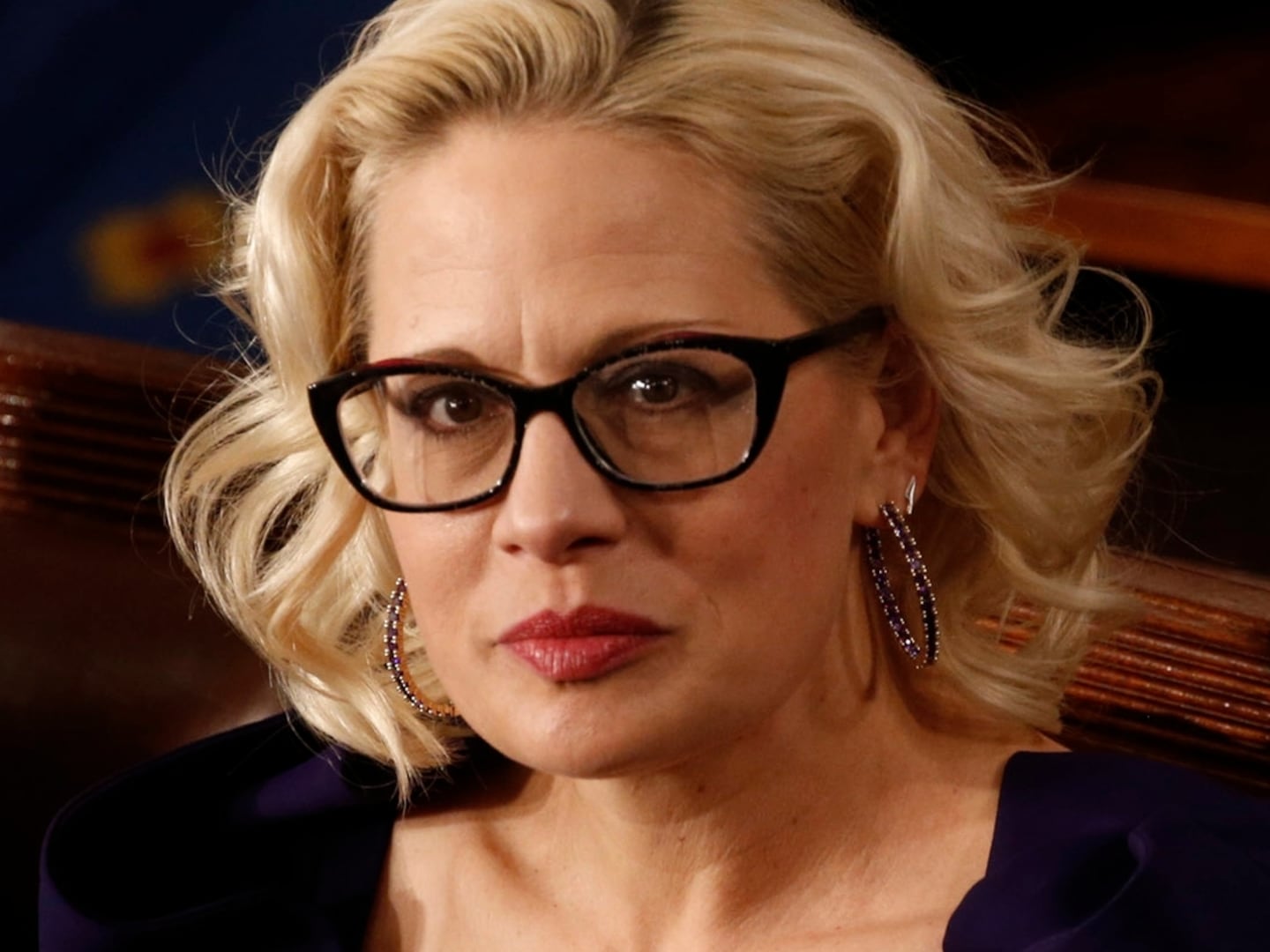With less than a week to go before Virginia’s gubernatorial election, a narrative is developing about Republican nominee Ed Gillespie that goes like this: Once a compassionate conservative who talked about being the son of an immigrant, Gillespie is “attempting a Trump maneuver” in a desperate attempt to pander to the fever swamps on the right.
The evidence for this generally has to do with Gillespie’s hard-hitting TV ads that focus on Civil War monuments and MS-13 gang violence.
Like a popular garage band that gets commercial success, the chattering classes have collectively decided that Gillespie has sold out. In recent days, we’ve been treated to an increasing number of tweets and columns that essentially boil down to saying: “You’ve changed, man!”
For example, Reason’s C.J. Ciaramella writes that “Whether he believes in it or not, Gillespie hopes invoking that fear will put him in office.” And Yahoo’s Jon Ward writes, “The inflammatory nature of [his MS-13] TV ad illustrates to many observers how even the most moderate Republicans are being pulled to the hard right by the Republican Party base.”
I’m not sure the criticism that this is about the hard right base is entirely fair.
According to a new Washington Post-Schar School Virginia Poll, 63 percent of registered voters in Virginia say that displaying the Confederate statues “honors leaders who should be respected for their role in U.S. history.” Only 31 percent want to remove the monuments. “That’s not a ‘galvanize the base’ issue, [this issue] cuts a broad path across the middle of the electorate,” says Gene Ulm, a GOP pollster whose firm Public Opinion Strategies works for Gillespie’s campaign.”
It might not surprise you to learn that there is a yawning chasm between the way people in the media perceive these issues and the way average Americans see them. Gillespie isn’t campaigning on fringe issues that motivate a sliver of the right—he’s campaigning on wildly popular issues.
Another controversial, if mainstream, position Gillespie is stressing is his opposition to sanctuary cities. As lieutenant governor, his Democratic opponent, Ralph Northam, cast a tie-breaking vote against a bill banning sanctuary cities. A recent Hampton University survey showed 53 percent of Virginians opposing them, with just 36 percent supporting them. The mainstream appeal of this issue is evidenced by the fact that the Republican candidate for governor of New Jersey, lieutenant governor Kim Guadagno, is running similar ads in the Garden State.
To be sure, base turnout—especially key in a low turnout race (Republicans anticipate between 40-43 percent of Virginia voters will cast a ballot)—matters. Anyone running for office in an off-year election should be worried about turning out their base. “It would be political malpractice if they didn’t run these ads,” says one Virginia Republican strategist.
But the notion that Gillespie has sold out his past values in order to run a scurrilous base campaign just doesn’t hold water. Although it isn’t being highlighted in TV ads, Gillespie hasn’t abandoned his former brand. In the wake of Charlottesville, Gillespie condemned the “vile hate” coming from white supremacists. Last month, he publicly stood up for DREAMers.
What is more, Democrats clearly believe that immigrant turnout is key to their success and liberal groups are engaging in equally questionable base motivation tactics for Northam. Perhaps the most egregious example comes from the Latino Victory Fund, which is running an ad where minority kids are being chased by a pickup truck. Oh, and the truck has a Gillespie bumper sticker and is flying the Confederate battle flag. Another of their ads calls Gillespie “racist” and “bigoted.”
“The fact is that neither gubernatorial campaign is running on actual issues, but symbolic ones,” says Carlyle Gregory, a long-time Republican consultant in Virginia. “Can you name anything that Northam is proposing to do as governor? Gillespie has a whole mess of issues, but the voters don't have a sense of his agenda either.”
But is this terribly new, or even predictive (in terms of telling us anything about how a candidate will govern)? Anyone who remembers George Allen’s Virginia campaigns knows that culture issues have long resonated in the Commonwealth—whether it was working for him (his plan to abolish parole in 1994) or against him (see the “Macaca” scandal).
President George H.W. Bush’s 1988 campaign is widely considered to have been very negative and racist, and focused on casting Michael Dukakis as “the other,” but Poppy Bush governed as a prudent statesman. His Justice Department did nothing to curtail voting rights and in fact helped facilitate the creation of more “majority-minority” congressional districts. John McCain’s last U.S. Senate campaign had him appearing in a TV ad pledging to “build the danged wall.” Last time I checked, both men (save for recent allegations of Bush and groping) are well regarded by the mainstream media today.
It’s easy to look at this nasty race and assume that it is a product of the toxic national political environment. To be sure, events happening in the political universe—George Washington’s church taking down his plaque, the Mueller indictments, and more—have the potential to impact this race in a decisive manner. But this race would probably look about the same no matter who was elected president. “Everyone was saying Trump was on the ballot,” says Ulm, “but he’s not on the ballot as much as people think.”
Yes, it’s Trump’s party. But if you’re looking for a tidy microcosm to prove this point, leave Virginia (and Gillespie) alone. Negative “culture war” campaigns existed before Trump, and I’m pretty sure they will exist long after he’s gone.





